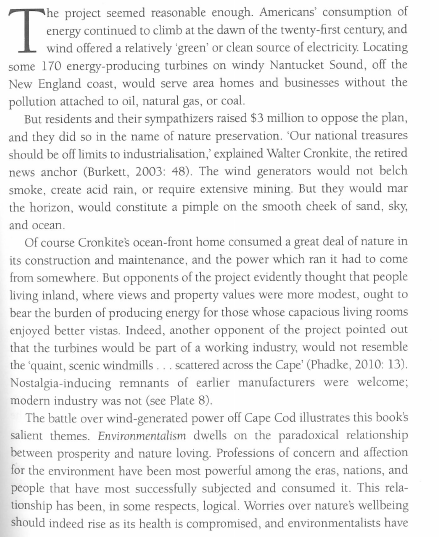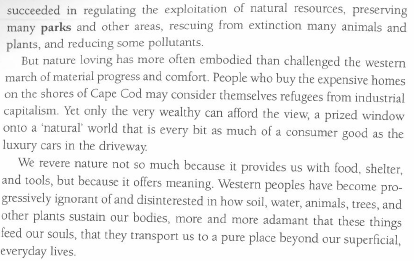This is an example of a micro-learning activity undertaken by students studying my Environmental Issues couse.
Objective: To reflect on the ‘paradoxical relationship between prosperity and nature loving’.
Students are invited to read the following extract from Peterson del Mar’s 2012 book Environmentalism and then to identify other real-world examples of the paradox between prosperity and nature loving. Students share their work on the virtual learning environment and discuss it in the next class.


About the paradox:
Peterson del Mar’s Environmentalism (2012) explores the intricate and sometimes paradoxical relationship between prosperity and environmental consciousness, particularly in affluent societies. The paradox emerges from the observation that societies with higher levels of prosperity often cultivate a stronger appreciation for nature, yet the very economic and industrial activities that create this prosperity frequently degrade the environment.
In essence, as people’s material needs are met and they experience greater comfort and security, they develop the luxury of “loving nature” or becoming environmentally conscious. This growing environmental concern, however, often coexists with high levels of resource consumption, energy use, and environmental impact—factors that contribute to the wealth that enables such concern. Del Mar highlights how affluent societies may advocate for conservation and sustainability, yet their lifestyles often contradict these values by relying on practices that contribute to environmental degradation.
Furthermore, del Mar notes that many environmental movements in the Global North have roots in wealthier, more secure segments of society, where the leisure to engage with nature and reflect on environmental issues is more readily available. However, this prosperity often comes at the cost of intensive resource extraction and pollution, which disproportionately affect less affluent regions and communities.
The paradox, then, lies in the coexistence of a rising appreciation for nature and increased environmental degradation, driven by the same forces of economic growth. This tension is central to understanding the complexities of modern environmentalism, where advocating for nature protection often requires addressing the unsustainable aspects of prosperity itself.
